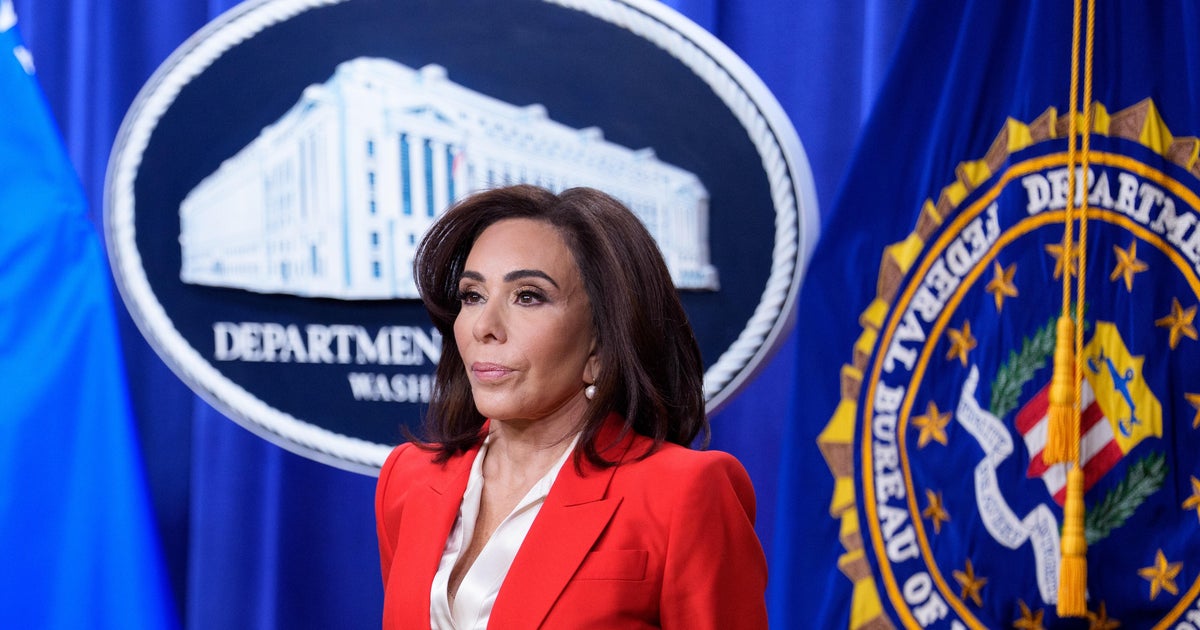Postal Service changes, coronavirus relief deadlock have lawmakers worried about November
Washington — A slew of changes to the U.S. Postal Service ushered in by the new postmaster general coupled with the logjam on Capitol Hill on a deal that could provide the agency with a much-needed injection of cash has lawmakers sounding the alarm that mail delays could lead to missed deadlines for voters seeking to cast their ballots by mail.
"We need a well-functioning Post Office in all circumstances, but especially when we are trying to conduct an election that provides voters choices so they don't have to choose between their fundamental right to vote and their safety," Myrna Pérez, director of the Voting Rights and Elections Program at the Brennan Center, told CBS News. "Mail balloting is understood by all experts to be part of that solution, and that means the Post Office needs to have the resources to serve everyone in an equitable way."
Louis DeJoy, a major GOP donor, assumed the role of postmaster general in June and has rolled out a series of cost-cutting measures that soon sparked a backlash: curtailing overtime, reorganizing the agency's top ranks and calling for late-arriving mail to be delivered the following day.
In remarks before the Postal Service Board of Governors meeting last week, DeJoy confirmed changes are underway within the agency.
"We have taken immediate steps to better adhere to our existing operating plans, which were developed precisely to ensure that we meet our present service standards in an efficient and effective manner," he said. "By running our operations on time and on schedule, and by not incurring unnecessary overtime or other costs, we will enhance our ability to be sustainable and to be able to continue to provide high-quality, affordable service."
But Mark Dimondstein, president of the American Postal Workers Union, said the changes have led to a slowdown in mail delivery and a back-up of letters and parcels. Long-term postal workers, he told CBS News, "haven't seen anything this bad."
While DeJoy said the overhaul is necessary to bring the Postal Service from the brink of insolvency, Republicans and Democrats are warning the backlog sparked by his changes will lead to voters missing deadlines for mail-in ballots and elderly Americans being left without their prescriptions.
Montana Senator Steve Daines, a Republican, urged DeJoy to undo a July directive to hold late mail until the next day. House Speaker Nancy Pelosi and Senate Minority Leader Chuck Schumer, both Democrats, met with DeJoy at the U.S. Capitol last week to underscore the issues facing the Postal Service and, like Daines, urged him to repeal his operational changes.
On Wednesday, all 47 Senate Democrats told DeJoy that while delayed mail under normal circumstances is problematic, "during a pandemic in the middle of a presidential election, it is catastrophic." Likewise, more than 170 House Democrats signed on to a letter expressing concern that his policies are accelerating the crisis at the agency, including directing Post Offices to no longer treat all election mail as First Class.
"If implemented now, as the election approaches, this policy will cause further delays to election mail that will disenfranchise voters and put significant financial pressure on election jurisdictions," they told DeJoy. "Because many states have traditionally allowed voters to request absentee ballot applications and absentee ballots within a few days of the election, it is essential that standard delivery times remain short and pricing remain consistent."
But DeJoy said during the Board of Governors meeting the Postal Service's delivery standards haven't changed and refuted assertions that the agency is slowing down election mail.
"If public policy makers choose to utilize the mail as a part of their election system, we will do everything we can to deliver Election Mail in a timely manner consistent with our operational standards," he said.
Recognizing the fiscal issues facing the Postal Service — it lost $9 billion last year — some lawmakers are working to shore up the agency.
House Oversight and Reform Committee Chairwoman Carolyn Maloney rolled out legislation Wednesday that seeks to halt any changes to the Postal Service's operations or levels of service until the pandemic subsides. In the Senate, a bipartisan group of senators also introduced legislation that would provide the Postal Service up to $25 billion for revenue losses and operational expenses stemming from the coronavirus pandemic.
Daines, a cosponsor of the Senate bill, told DeJoy he is pushing for the measure to be included in the next coronavirus relief measure.
But prospects of another legislative package passing in the near future appear dim, as talks between congressional Democratic leaders and the White House collapsed last week. In response to the impasse, Mr. Trump took unilateral action with a series of executive actions designed to provide economic relief for struggling Americans.
While the president claimed his orders brought Democrats back to the negotiating table, Republicans and Democrats are pointing fingers over who is to blame for the standoff, indicating it shows no signs of abating.
Dimondstein said allowing the Postal Service to creep toward bankruptcy "gives grist for the mill for those who want to claim they want to cut, cut, cut and delay, delay, delay in the name of financial stress or cost-cutting measures."
"The longer they wait, the closer it gets to running out of money. It's not a question of if, it's a question of when," he said of lawmakers. "It's incumbent upon Congress to act."
Dimondstein said that while there is no doubt postal workers can handle the influx of election mail expected as states expand vote-by-mail, "any time mail slows down it degrades anything we do."
"There are lots of postal workers trained to expedite mail ballots, make sure they get delivered, but it would be far better in terms of the election if Congress acted with the financial emergency relief and if the Post Office reversed their regressive policies," he said.
But Mr. Trump himself is a barrier to federal assistance to the Postal Service. In an interview with Fox Business on Thursday, the president admitted starving the agency of federal money would stymie efforts to expand mail-in voting. Mr. Trump has repeatedly expressed his opposition to voting by mail, insisting without evidence that it opens the door to potential voter fraud.
"Two of the items are the Post Office and the $3.5 billion for mail-in voting," Mr. Trump told Fox Business of Democrats' requests. "If we don't make a deal, that means they don't get the money. That means they can't have universal mail-in voting. It just can't happen."
Mr. Trump added that House Democrats, who approved $25 billion for the Postal Service in an earlier coronavirus relief measure, "need that money in order to have the Post Office work so it can take all these millions and millions of ballots."
"But if they don't get those two items that means you can't have universal mail-in voting because they're not equipped to have it," he said.
Last month, the Treasury Department agreed to loan the Postal Service $10 billion, but Dimondstein said the assistance cuts against the agency's mission and raises the likelihood for political interference.
"Strings or no strings attached, the Post Office is supposed to be an apolitical agency," he said. "For Treasury to have their finger on the rudder like this is really bad and it runs counter to the existence of the modern Post Office."



